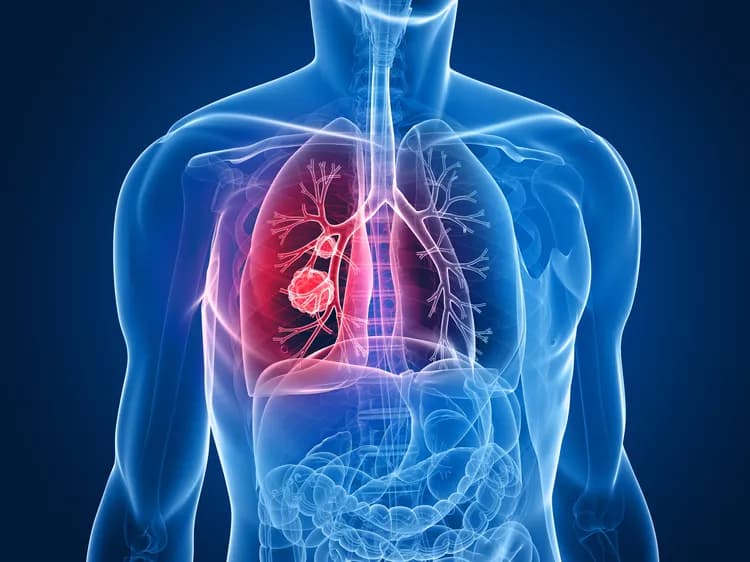
Respiratory Tract Infections In Young Children Linked To Asthma And Worse Lung Function
Respiratory tract infections in young children are linked to an increased risk of asthma and worse lung function in later life, according to new research to be presented at the European Respiratory Society International Congress today (Sunday).
An international study of 154,492 European children found that those who had had upper respiratory infections, such as colds, sinusitis, laryngitis, tonsillitis, pharyngitis and otitis, by the age of five years had a 1.5-fold increased risk of developing asthma in later life. Children who had suffered from lower respiratory tract infections, such as bronchitis, bronchiolitis, pneumonia and general chest infections, had a two- to four-fold increased risk of developing asthma in later life and were also more likely to have worse lung function.
Dr Evelien van Meel (MD), from the Generation R Study Group at Erasmus MC University Medical Centre, The Netherlands, will tell the congress: "These findings support the hypothesis that early-life respiratory tract infections may influence the development of respiratory illnesses in the longer term. In particular, lower respiratory tract infections in early life seem to have the greatest adverse effect on lung function and the risk of asthma.
"However, at this stage we cannot say for certain whether the relationship is causal. Further studies that measure lung function and wheezing from birth onwards are needed to explore whether the infections cause asthma and lower lung function, or whether wheezing and lower lung function may be predisposing these children to develop the infections. Studies that aim to prevent or treat respiratory tract infections at an early stage, perhaps by vaccination, would also help to shed light on this."
Lung function and asthma are two different measures of respiratory health and are only partly related. "Lung function is an objective measure of the function of the lungs and airways. Lung function could be affected without leading to symptoms, or it could lead to asthma or other complaints such as wheezing. Additionally, a child could be diagnosed with asthma but their lung function could be fairly unaffected, for example because they are taking adequate asthma medications," says Dr van Meel.
The researchers analysed data from 37 groups of children from several European countries [1] who were born between 1989 and 2013. Children were included in this meta-analysis if data were available on respiratory tract infections in early life (from age six months up to five years old), and childhood lung function and/or asthma. The length of follow-up varied between groups, but ranged from birth until the age of four to 15 years.
The children's lung function was measured as they grew older with a spirometer, an instrument that measures:
- forced vital capacity (FVC) -- a measure of the amount of air that can be exhaled from the lungs after taking the deepest breath possible
- forced expiratory volume in one second (FEV1) -- how much air can be exhaled in the first second
- forced expiratory flow at 75% of FVC (FEF75) -- the speed of air exhaled after exhaling three quarters of the total lung volume during a forced exhalation.
"Lung function was not measured in very young children," explains Dr van Meel. "The youngest children with lung function measurements were four years of age and the oldest 15 years of age, with an average age of eight years."
The researchers adjusted their analysis to take account of factors that could affect the results, such as socio-economic status, lifestyle, birth weight, gestational age at birth, gender, age, height and ethnicity.
They found that upper respiratory tract infections were not associated with worse lung function in later life. However, lower respiratory tract infections at almost all ages were associated with worse lung function as indicated by lower scores for FVC, FEV1 and FEF75.
Dr van Meel says it will be interesting to examine the long-term consequences in adulthood of respiratory tract infections on lung function and asthma. "At the age of eight years, asthma is usually well established, as is lung function. Lung function in childhood is most likely related with lung function in adulthood."
The researchers are planning further research. "Specifically, we want to study the roles played by antibiotics, paracetamol and exposure to second-hand smoke in the relationships between respiratory tract infections and lung function or asthma. Also, we would like to study what percentage of the association between respiratory tract infections and asthma can be explained by changes in lung function, and whether the associations change when we take early-life wheezing into account," she will conclude.
[1] The European countries involved were Belgium, Denmark, Finland, France, Germany, Greece, Italy, Ireland, The Netherlands, Norway, Poland, Portugal, Spain, Sweden, Switzerland, and the UK.
Materials provided by European Lung Foundation. Note: Content may be edited for style and length.
Disclaimer: DoveMed is not responsible for the accuracy of the adapted version of news releases posted to DoveMed by contributing universities and institutions.
References:
European Lung Foundation. (2017, September 10). Respiratory tract infections in young children linked to asthma and worse lung function: Increases risk of asthma between 1.5- to 4-fold as the children grew older. Retrieved September 17, 2017.
Related Articles
Test Your Knowledge
Asked by users
Related Centers
Related Specialties
Related Physicians
Related Procedures
Related Resources
Join DoveHubs
and connect with fellow professionals

0 Comments
Please log in to post a comment.